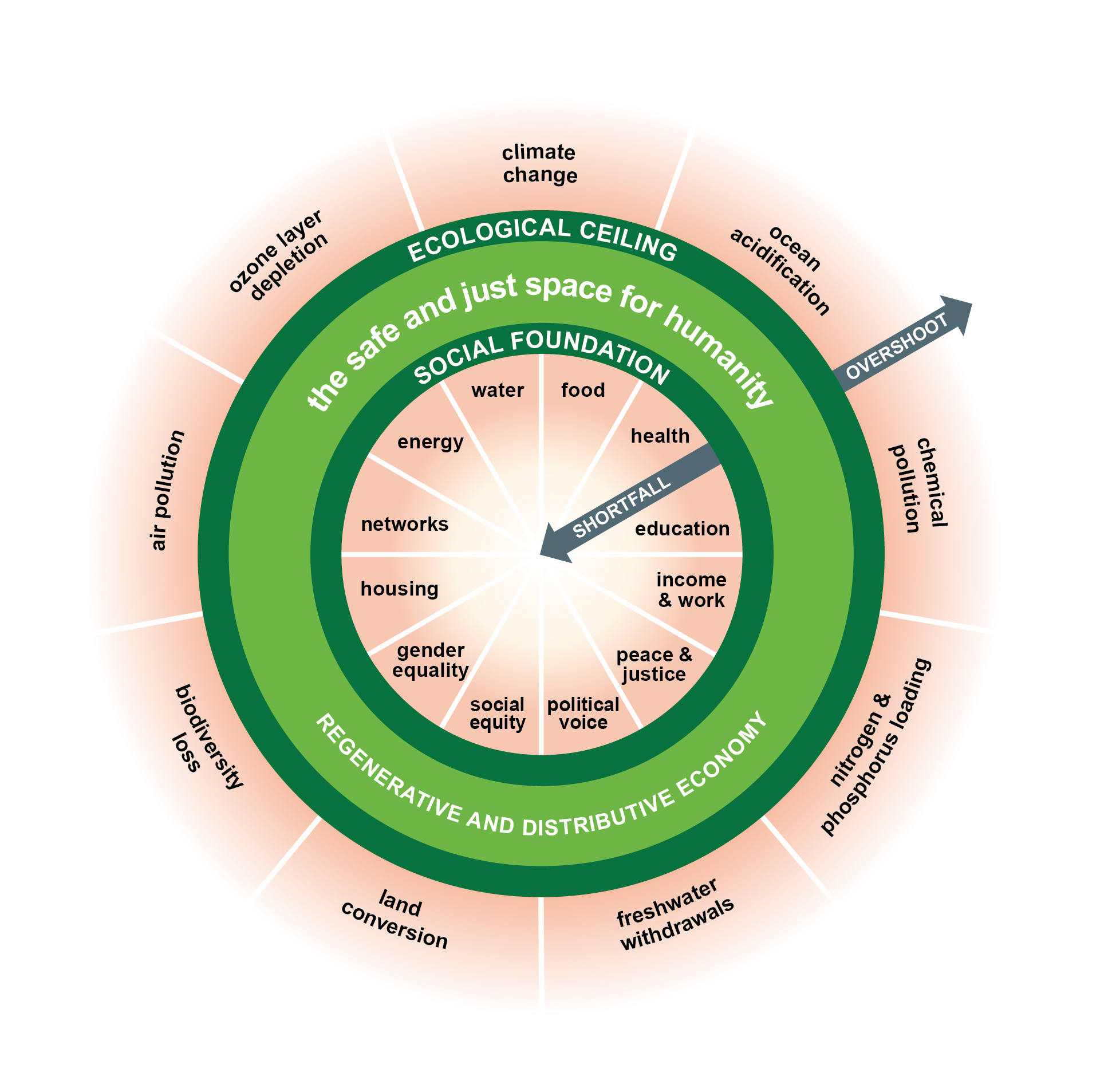Doughnut Economics
*- A
- book
- Written by
- Kate Raworth
I like the book. Combines alternative economics, systems thinking, care, feminism, environmentalism, some socialist ideas.
I very much like the idea of a regenerative and distributive economy. Not sure if she'd describe it as such, but it comes across fairly ecosocialist, with its dual concern for social equity and planetary boundaries. Though not explicitly anti-capitalist, it's anti neoliberal economics.
1. The Doughnut
I like how easily graspable as a visual rubric it is - don't let anyone go into the hole of the doughnut, i.e. have a baseline of equity for everyone, and don't go outside the outer edge - i.e. stay within planetary boundaries.
The bit in the middle, the doughnut, is a regenerative and distributive economy.

(CC-BY-SA 4.0 from .jpg) )
)
2. Ecological ceiling
- Climate change
- Ocean acidification
- Chemical pollution
- Nitrogen & phosphorous loading
- Freshwater withdrawals
- Land conversion
- Biodiversity loss
- Air pollution
- Ozone layer depletion
i.e. the planetary boundaries.
3. Social foundation
- Water
- Food
- Health
- Education
- Income & work
- Peace & justice
- Political voice
- Social equity
- Gender equality
- Housing
- Networks
- Energy
I like the seven ways to think like a 21st century economist:
- Change the Goal: Shift from GDP growth to thriving within the Doughnut's ecological and social boundaries
- See the Big Picture: Recognize that economies are embedded within society and the environment.
- Nurture Human Nature: Promote cooperative and caring behaviors over competitive ones.
- Get Savvy with Systems: Understand economies as complex, interdependent systems.
- Design to Distribute: Create distributive economies that address inequality.
- Create to Regenerate: Transition from degenerative to regenerative economic practices.
- Be Agnostic about Growth: Focus on thriving rather than perpetual growth.
4. Elsewhere
4.1. In my garden
Notes that link to this note (AKA backlinks).
- Kate Raworth
- 2024-11-22
- 2024-11-09
- Feedback
- 2023-11-23
- 2024-11-04
- 2024-11-14
- stocks and flows
- 2022-08-07
- 2021-08-24
- How Degrowth Will Save the World with Jason Hickel
- Public-collective partnerships
- Free, Fair and Alive
- Some books I've read
- Liberatory technology
- 2025-03-30
- 2023-11-13
- 2024-11-08
- 2020-08-02
- Kate Raworth on Why Our Times Demand 'Doughnut Economics'
- 2025-04-06
- system
- 2021-02-04
- New Economics Podcast: Should we be going for growth?
- delay
- When Preston Meets the Doughnut
- 2023-11-24
- Half-Earth Socialism
- GDP
- Doing the Doughnut.tech
- 2024-11-21
- 2021-08-16
- Commons Based Peer Production on the Blockchain
- 2024-11-16
- Complexity and the left
- Complexity Science and Commoning
- 2023-11-30
- Well-connected
- P2P Accounting for Planetary Survival
